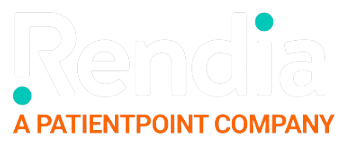How to combat its effects on informed consent, patient adherence and provider trust
Patients are more skeptical than ever, especially when it comes to their healthcare. The spreading of misinformation has skyrocketed since the beginning of the COVID-19 pandemic and shows no signs of slowing. With mask mandates being lifted on flights, vaccine and booster recommendations continuing to change, and social media platforms grappling with ownership and censorship, patients may feel confused or overwhelmed and not know who they can rely on for trustworthy information about their health.
There are many reasons to make sure you’re educating and informing your patients consistently and effectively. For one thing, it’s an important part of the informed consent process, and can make or break a patient’s decision to move forward with a recommended treatment or procedure. There is also a link to adherence. In glaucoma patients who were non-adherent, reasons included skepticism that glaucoma leads to vision loss and/or that glaucoma medications can prevent vision loss, and general insufficient knowledge about the disease, according to Optometric Management.
Actively combating misinformation can improve patients’ adherence, facilitate the informed consent process and build trust in providers.
Being a source of accurate information is also a way to build and retain your patients’ trust, which is more important now than ever.
What doctors can do to combat misinformation
Are COVID cases rising again? Should we be worried? Are masks still required indoors? These are all legitimate questions patients may have. It’s hard to keep up with the ever-changing COVID-19 case numbers and mask mandates, and that can even be true for doctors. However, some things remain the same:
Know the facts. Keep as up-to-date as possible on information from your own trusted professional sources. Whether that is what the American Medical Association (AMA) is saying about boosters, or the latest data from the American Academy of Ophthalmology (AAO) on whether conjunctivitis is a symptom of COVID-19, stay informed on issues your patients may ask you about.
Listening to and addressing patients’ concerns in an empathetic way doesn’t have to take a lot of time.
Take time to listen. Studies have shown that doctors frequently interrupt patients. But really listening to patients’ questions and concerns is key to fostering good communication, building trust – and getting patients to take your advice. This doesn’t have to take a long time. As an example, this CDC guide to talking with patients about COVID-19 vaccination lists four steps that take one to five minutes during a patient exam. You can use this same motivational interviewing technique to discuss any health intervention you’re asking patients to consider.
Address the patient’s specific concerns. We can give patients all sorts of information, but unless we address what they’re actually concerned about, it’s a waste of time. For instance, if they are concerned about how cataract surgery will affect their ability to play golf, or if they have a misconception that cataracts “grow back,” you need to tailor your patient education to those issues.
Note: If you don’t know the answer to something a patient asks you, there’s nothing wrong with saying you will research the matter and get back to them.
Don’t be condescending. You may think this goes without saying, but “while something may seem ridiculous to us as healthcare providers, it may be completely reasonable to our patients,” wrote Linda Girgis, M.D. and Logan Lutton in Physicians Practice. Try to understand where they are coming from. Maybe they heard it from a close family member or a celebrity they admire. “Ridiculing these others is not going to bring patients closer to the truth … We need to be empathetic and not undermining.”
Social media is a huge contributor to misinformation. Point patients towards better sources of health and medical info, such as Rendia videos.
Don’t underestimate the power of social media. Last year, U.S. surgeon general Dr. Vivek Murthy, declared health misinformation “an urgent threat to public health” and said that social media companies needed to fight it more aggressively. “The companies that are running these platforms have no responsibility to put out accurate information and they become de facto news organizations and it’s how people get their information,” said journalist Kara Swisher recently on the SoundPractice podcast from the American Association for Physician Leadership.
Take the time to explain to patients – of all ages – that information they see on social media is not always unbiased and accurate. Studies show social media algorithms contribute to the misinformation problem by deciding what users see, often pushing them toward “extreme content and polarized bubbles” and amplifying news items “without regard to real importance or accuracy,” reported medical news site STAT.
Point patients towards better sources of medical information, such as Rendia videos on your own website or social media platforms.
As Dr. Girgis wrote, “Misinformation has been around for a long time but never more pertinent than it seems these days … Yet, science is an indisputable truth that doesn’t care what anyone thinks about it. As doctors, we are called to be champions for that truth and for the well-being of our patients.”
Want to learn more about offering effective patient education to patients of all health literacy levels? Download our eBook today!

